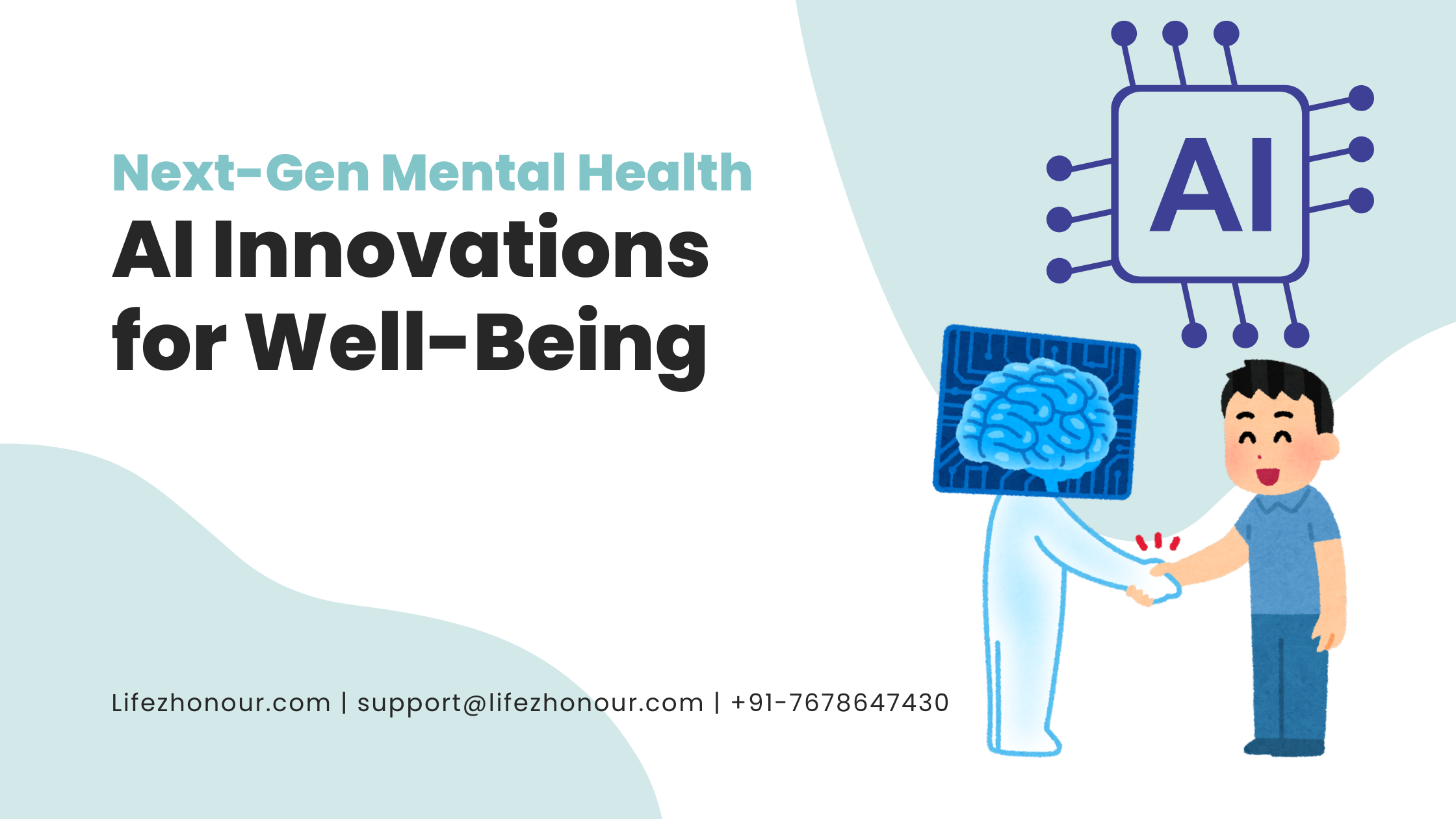Next-Gen Mental Health: AI Innovations for Well-Being
You know human emotions and feelings are not a part of AI. In the mental health domain, emotions and feelings are the root of a coaching process.
I know many people will definitely have this question: if emotions and feelings are the root of the mind wellness domain, then how will AI work in this field? And if we are executing AI in the mind wellness domain, how accurate and effective will the quality and outcome be? There is a lot of confusion about this. But let me clarify my point of view on the syncing of AI in the mind wellness domain.
The execution of any updated or advanced technology in any domain is a supportive contribution. And when we talk about AI, it is a great opportunity to deal with increasing stress in society in a smart way and build a better society. The proper execution of AI in the mind wellness domain is a significant game changer.
The integration of artificial intelligence (AI) in the domain of mind wellness is revolutionizing the way we understand, diagnose, and treat mental health issues. As mental health awareness grows, so does the potential for AI to provide innovative solutions that can reach more people and offer more personalized care. Here’s how we can smartly execute AI in the mind wellness domain.
1. Personalized Mental Health Support
AI has the capability to analyze vast amounts of data to identify patterns and predict outcomes. By leveraging machine learning algorithms, we can create personalized mental health plans that are tailored to the specific needs of each individual. Here's how:
- Data Collection: Utilize wearables and mobile apps to gather data on sleep patterns, physical activity, heart rate, and more.
- Analysis and Recommendations: AI algorithms can analyze this data to provide personalized recommendations for improving mental health, such as adjusting sleep routines or suggesting mindfulness exercises.
2. Virtual Therapists and Chatbots
AI-powered virtual therapists and chatbots are becoming increasingly sophisticated and can provide immediate support to individuals in need. These tools can:
- Offer Immediate Assistance: Provide 24/7 support for individuals experiencing anxiety, depression, or stress, offering immediate coping strategies and exercises.
- Bridge the Gap: Serve as a preliminary step before seeing a human therapist, making mental health support more accessible to those hesitant or unable to visit a therapist in person.
3. Predictive Analytics for Early Intervention
Early intervention is crucial in preventing the escalation of mental health issues. AI can help identify early signs of mental health problems through predictive analytics:
- Monitoring and Alerts: Continuously monitor data from various sources (social media, wearables, medical records) to detect early warning signs of mental health deterioration.
- Proactive Interventions: Alert healthcare providers and family members when intervention might be necessary, allowing for timely support.
4. Improving Access to Mental Health Resources
One of the biggest barriers to mental health care is access. AI can help overcome this barrier by:
- Teletherapy Platforms: Enable remote therapy sessions, making mental health support accessible to individuals in remote or underserved areas.
- Resource Optimization: Use AI to optimize the allocation of mental health resources, ensuring that support is available where it’s needed most.
5. Enhancing Cognitive Behavioral Therapy (CBT)
Cognitive Behavioral Therapy is a common and effective treatment for many mental health issues. AI can enhance CBT by:
- Interactive Apps: Develop interactive CBT apps that guide users through exercises and provide feedback.
- Progress Tracking: Track user progress over time, allowing therapists to tailor sessions more effectively based on data-driven insights.
6. Ethical Considerations and Data Privacy
Implementing AI in mental health care comes with significant ethical considerations:
- Data Privacy: Ensure that all personal data is securely stored and only used with explicit consent from the user.
- Bias and Fairness: Continuously monitor AI algorithms to prevent biases and ensure fair treatment for all individuals, regardless of background.
7. Collaborative Efforts and Continuous Learning
The successful implementation of AI in mind wellness requires collaboration across multiple disciplines:
- Multidisciplinary Teams: Encourage collaboration between AI specialists, mental health professionals, and ethicists to develop effective and ethical AI solutions.
- Continuous Improvement: Regularly update AI systems based on the latest research and user feedback to improve their effectiveness and reliability.
AI has the potential to transform the field of mind wellness by providing personalized support, improving access to care, and enabling early intervention. By implementing these smart strategies, we can harness the power of AI to enhance mental health outcomes and make support more accessible and effective for everyone. As we move forward, it is essential to balance innovation with ethical considerations, ensuring that AI serves as a beneficial tool in promoting mental well-being.
For any question or query, kindly reach out to us at support@lifezhonour.com

